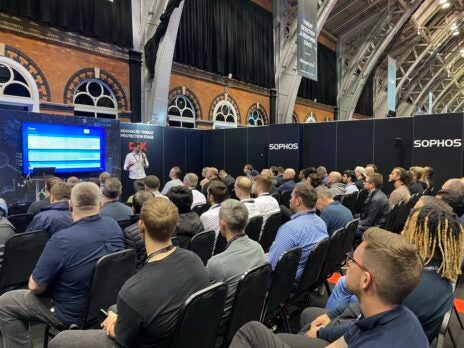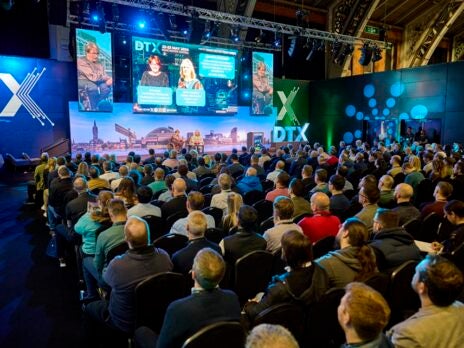With proper training, you can swim, work or play at depths of up to 100feet, but after that, watch out. You may suffer from nitrogen narcosis, also called rapture of the deep. You’ll feel drunk. You’ll act stupid. You might surface too fast and end up with the bends, the decompression illness that is caused by the formation of nitrogen bubbles in your body. With proper leadership, IBM might be able to carry debts of $30,000m, but after that, watch out. It might suffer from fiscal narcosis, a condition rampant among banana republics and leveraged buy-outs that can have debilitating effects on the solvency of widows and orphans. One slip and the whole shebang could sprain IBM’s debt ratings. Too much time under all that pressure and IBM might end up in Chapter 11, showing just how wrong those who have said They couldn’t possibly spend any more on lawyers can be. On June 8, IBM passed the $30,000m debt level by selling $1,800m in new obligations. A few days earlier, the company had sold $1,100m of preferred stock.
Nearly lunchtime
Although the market’s appetite for IBM securities was healthy strong demand enabled both issues to be increased in size at the last minute – it still knew it was being served hamburger where once it had dined on steak. To sell its paper, IBM had to offer relatively higher yields than it did last October, when it borrowed $1,650m. The June borrowing, combined with concerns about IBM’s earnings and speculation surrounding more layoffs, eventually caught up with IBM and its stock, which had climbed into the mid-50s. It fell below $50 a share in late June. Had the stock kept falling, it would have put chairman Louis Gerstner in the red on a recent investment in IBM common. In April, it later emerged, Gerstner bought 1,500 shares of IBM at prices between $48 and $49 each, a total investment in the vicinity of $72,000. What a vote of confidence! Gerstner’s take from IBM this year will be about $8.5m ($2m in salary, $1.5m as a bonus and $5m to compensate for whatever he was sentimental about leaving at RJR Nabisco). So, Gerstner’s April investment in IBM comes to 44% of his weekly $163,500 earnings. In a typical week (not when he is on holiday), Gerstner would have to labour from first thing Monday morning until nearly lunchtime on Wednesday to pay for all that stock. Of course, Gerstner’s weeks are very intense. He undoubtedly devotes his every waking minute and a good portion of his sleep to IBM. In this act of concentration, Gerstner has been aided by IBM’s board of directors, who did not want him distracted by problems from outside, such as the worth of the many RJR Nabisco shares and options the chairman holds. IBM’s directors have provided Gerstner with what amounts to insurance on the value of his RJR holdings (and potential holdings). With ownership and options on about 3.5m shares and a guaranteed price of 8.125 a share, IBM’s tranquilliser was worth more then $10m in late June. But RJR Nabisco is still fiddling with ways to sell investors some of its food business by increasing the perceived distance between lovable old Oreos and the poisonous, addictive substances that the dark side of RJR peddles.
By Hesh Wiener
If Gerstner’s erstwhile employer can carry off its caper, IBM might be off the hook. But Wall Street hasn’t yet made up its mind about the mendicant tobacconist at its portals. We should not compare RJR Nabisco with IBM, however. The cigarette business is on its butt as smokers quit or die and price wars instigated by RJR’s arch-rival Philip Morris cut deeply into profit margins. The mainframe business that is so vital to IBM, on the other hand, is merely in a sharp decline in sales and margins, hardly a similarity. Why only the other day, Stephen Smith, the top computer analyst at Paine Webber, pointed out that as many as three in 10 mainframe customers are planning to increase spending during the next 12 months. The other seven are cheapskates who plan to spend less. Pay them no mind. We’d also point out that IBM’s other divisions have no problems in common with the mainfr
ame group. Not to worry. In early June, IBM emphasised its devotion to customers as it recalled 150,000 laptop computers, the Jerry Lee Lewis commemorative models. In an unplanned tribute to the great rock artist and his hit rendition of Great Balls of Fire, the computers had an occasional propensity to melt, possibly while in customers’ laps. IBM assured an understandably interested public that only 15 customers complained (very loudly, we expect), but all will be treated as if their units were Gerstner’s very own. The very next day IBM proved once again why we all must depend on computers to store our facts and figures. Had we trusted our feeble recollections, we would have thought that IBM was arguably the largest and in its own words the most efficient producer of high-density memory chips. That could not have been the case, however, because IBM Japan, a showcase of industrial efficiency, said it couldn’t afford to use so many IBM memory chips any more and was going to charitable local suppliers to obtain components. We remain puzzled by the contradiction. Perhaps IBM could have turned to a low-cost American memory supplier, such as Comdisco. This could lead to a settlement of the little spat between the two companies, which has led to a great deal of name-calling, an impressive transfer of wealth from clients to their servers and the beatification of memory boards that are so representative of IBM’s genius that only every chip maker in Japan can supply their most abundant components.
Smart cookie
IBM would be wise to work out a settlement before Comdisco’s lawyers hire whoever represented Louis Gerstner during his remuneration talks. As they say at Nabisco, That was one smart cookie. Actually, they used to say that. Now they say, That’s the way the cookie crumbles. We are not critical of Louis Gerstner’s getting a good deal and particularly of his insistence that it be put in writing. At IBM’s Endicott, New York, facility, employees apparently volunteered to move from engineering to manufacturing on condition their higher salaries would be preserved for a year. A letter published by The Resistor newsletter (the voice of IBM Workers United) alleges IBM reneged. It is certain that you would have defended the pay cut by claiming that you had no way of knowing the future and what it would bring. Well, Mr Attardo [an IBM vice-president], that kind of comment would make any management team bristle with anger if it was a worker explaining why a deadline could not be met. The newsletter also says that the staff reduction scheme IBM’s acronymists have dubbed ETOP, for Endicott Transition Opportunity Programme, has been yclept Eliminate The Older People by some of the rank and file. IBM, for some years, has regarded its huge workforce as an albatross. But means as well as ends count in albatrossicides, as the poet Samuel Taylor Coleridge tried to explain in The Ancient Mariner. IBM, becalmed with its decks awash while competitors sail ahead, might realise this in time. But for now, the words of Coleridge may be an all too appropriate description of the industry as viewed from Armonk: Water, water everywhere, Nor any drop to drink.
(C) 1993 Technology News of America Co





